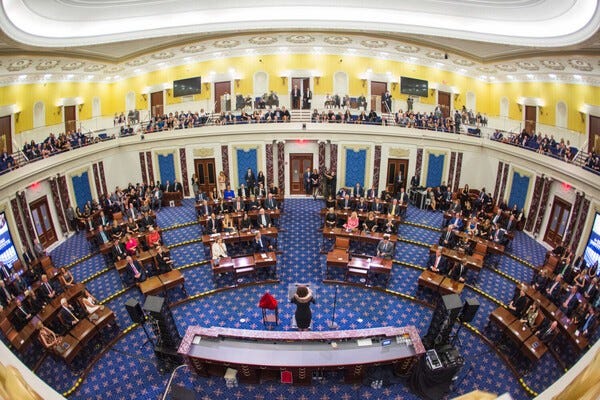
House Braces for Final Vote on Trump’s Sweeping Budget Bill
The US House of Representatives worked late into the night on Wednesday, racing against time to pass Donald Trump’s massive tax and spending bill before his Friday deadline. After clearing a critical procedural hurdle in the early hours of Thursday, the legislation now heads toward a final vote that could define Trump’s second term.
Despite Republican control of both chambers of Congress, the bill has faced fierce resistance—not just from Democrats but also from a faction of GOP lawmakers concerned about its impact on the national deficit, healthcare, and social programs.
What’s in the Bill?
The sprawling legislation includes:
- Tax cuts: Extends Trump’s 2017 tax reductions, which were set to expire.
- Spending boosts: Increases funding for border security and defense.
- Budget cuts: Partly offsets costs by slashing Medicaid, the federal health program for low-income Americans.
The bill narrowly passed the Senate earlier this week after an overnight session, but House Republicans remain divided.
Republican Resistance
Several factions within the GOP have threatened to derail the bill:
1. The Deficit Hawks
Fiscal conservatives, led by the House Freedom Caucus, argue the bill will balloon the national deficit. The Congressional Budget Office (CBO) estimates it could add $3.3 trillion to the debt over a decade.
Elon Musk, a former Trump ally, has repeatedly criticized the bill, calling it fiscally irresponsible. His remarks resonated with lawmakers like Texas Rep. Chip Roy, who warned the bill could fail without major changes.
2. The Medicaid Guardians
Some Republicans from low-income districts fear backlash over cuts to Medicaid and food assistance. The Senate’s version would strip 12 million Americans of health coverage by 2034, according to the CBO.
California Rep. David Valadao, representing a swing district, vowed to oppose any bill that harms Medicaid recipients.
3. The SALT Objectors
The bill raises the state and local tax (SALT) deduction cap from $10,000 to $40,000—but only for five years. Some Republicans want a permanent increase, adding another layer of tension.
Democrats Dig In
House Minority Leader Hakeem Jeffries stalled proceedings with a marathon speech, vowing to fight the bill “on behalf of the American people.” Democrats unanimously oppose the legislation, calling it a giveaway to the wealthy at the expense of working families.
Trump’s Last-Minute Push
The former president has been personally lobbying holdouts, hosting meetings at the White House and pressuring Republicans on social media.
“The House is ready to vote tonight,” Trump posted on Wednesday. “Republicans are united to deliver massive growth.”
Yet, some, like South Carolina Rep. Ralph Norman, remain unconvinced.
What Happens Next?
If the House passes the bill, it will head to Trump’s desk for final approval. If not, Republicans risk missing his July 4 deadline, forcing further negotiations.
With tensions high and the clock ticking, the final vote could come down to the wire.




